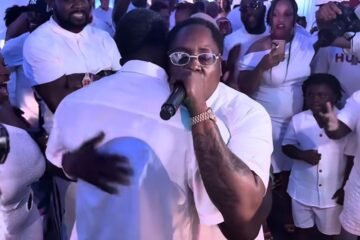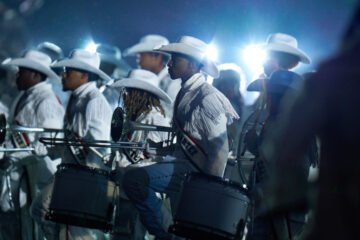HBCU Athletics: A Look at the Powerhouse Programs Making History

Historically Black Colleges and Universities (HBCUs) have a long and storied history in athletics, producing legendary athletes, iconic programs, and unforgettable moments in sports history. From football to basketball, track and field, and beyond, HBCU athletic programs have consistently demonstrated excellence, resilience, and a deep cultural impact.
The Legacy of HBCU Athletics
HBCUs have long served as a launching pad for some of the greatest athletes of all time. During the era of segregation, Black athletes were often denied opportunities at predominantly white institutions (PWIs), making HBCUs the primary platform for their talents.
Notable HBCU sports legends include:
Jerry Rice (Mississippi Valley State University) – Widely regarded as the greatest wide receiver in NFL history.
Walter Payton (Jackson State University) – One of the most dominant running backs ever.
Earl “The Pearl” Monroe (Winston-Salem State University) – A Hall of Fame NBA player known for his flashy style.
Althea Gibson (Florida A&M University) – A tennis and golf trailblazer who broke racial barriers in sports.
These athletes paved the way for future generations and solidified HBCUs as powerhouses in athletic development.
HBCU Football: A Tradition of Dominance
HBCU football is one of the biggest draws in Black college sports, with historic rivalries, passionate fan bases, and some of the most exciting games in college football.
Top HBCU Football Programs
Jackson State University (JSU) – With a rich football history and a recent resurgence under former head coach Deion Sanders, JSU has remained a dominant force in the SWAC (Southwestern Athletic Conference).
Grambling State University (GSU) – Led by legendary coach Eddie Robinson, Grambling produced over 200 professional players and remains one of the most storied programs in HBCU history.
Florida A&M University (FAMU) – Known for its Marching 100 band and strong football program, FAMU is a powerhouse in the MEAC (Mid-Eastern Athletic Conference).
North Carolina A&T State University (NCAT) – A dominant program in recent years, NCAT has won multiple Celebration Bowls and produced standout NFL talent.
Southern University – A key rival of Grambling, Southern’s Bayou Classic game is one of the biggest events in HBCU sports.
The Celebration Bowl, often referred to as the “Black College National Championship,” is the pinnacle of HBCU football, pitting the best teams from the SWAC and MEAC against each other for national bragging rights.
HBCU Basketball: Producing NBA Greats
While football gets much of the attention, HBCU basketball has also been a breeding ground for some of the game’s best talents. Programs like Texas Southern, Norfolk State, North Carolina Central, and Morgan State have all made NCAA Tournament appearances, with Norfolk State’s upset over Missouri in 2012 being one of the biggest in March Madness history.
Notable HBCU basketball players include:
Ben Wallace (Virginia Union University) – A Hall of Fame NBA champion and four-time Defensive Player of the Year.
Charles Oakley (Virginia Union University) – A dominant rebounder and enforcer in the NBA.
Kyle O’Quinn (Norfolk State University) – Led NSU to its historic March Madness upset and had a successful NBA career.
Track & Field: The Speed of HBCUs
HBCUs have also produced elite track and field athletes, many of whom have gone on to dominate the Olympics. Schools like Southern University, Tennessee State University, and Hampton University have a strong legacy in sprinting, hurdles, and long-distance running.
Track and field legends from HBCUs include:
Wilma Rudolph (Tennessee State University) – The first American woman to win three gold medals in a single Olympics (1960).
Edwin Moses (Morehouse College) – A two-time Olympic gold medalist and one of the greatest hurdlers ever.
Steve Riddick (Norfolk State University) – Olympic gold medalist and legendary sprint coach.
The Future of HBCU Athletics
With increased media attention and high-profile recruits considering HBCUs, the future of Black college sports is brighter than ever. Former NFL stars like Deion Sanders (Jackson State) and Eddie George (Tennessee State) have taken coaching roles to elevate HBCU programs. Meanwhile, corporate sponsorships, NIL (Name, Image, and Likeness) deals, and streaming partnerships are giving HBCU athletes more visibility.
Conclusion
HBCU athletics is more than just sports—it’s about legacy, culture, and community. From football to basketball, track and beyond, these institutions continue to shape the sports world and provide opportunities for the next generation of athletes. As HBCUs gain more recognition, their powerhouse programs will keep making history, proving that Black college sports are an essential part of America’s athletic landscape.
Want to Support HBCU Sports?
Attend an HBCU game or classic rivalry matchup.
Support HBCU athletes through NIL deals and merchandise.
Follow and promote HBCU sports on social media to increase visibility











